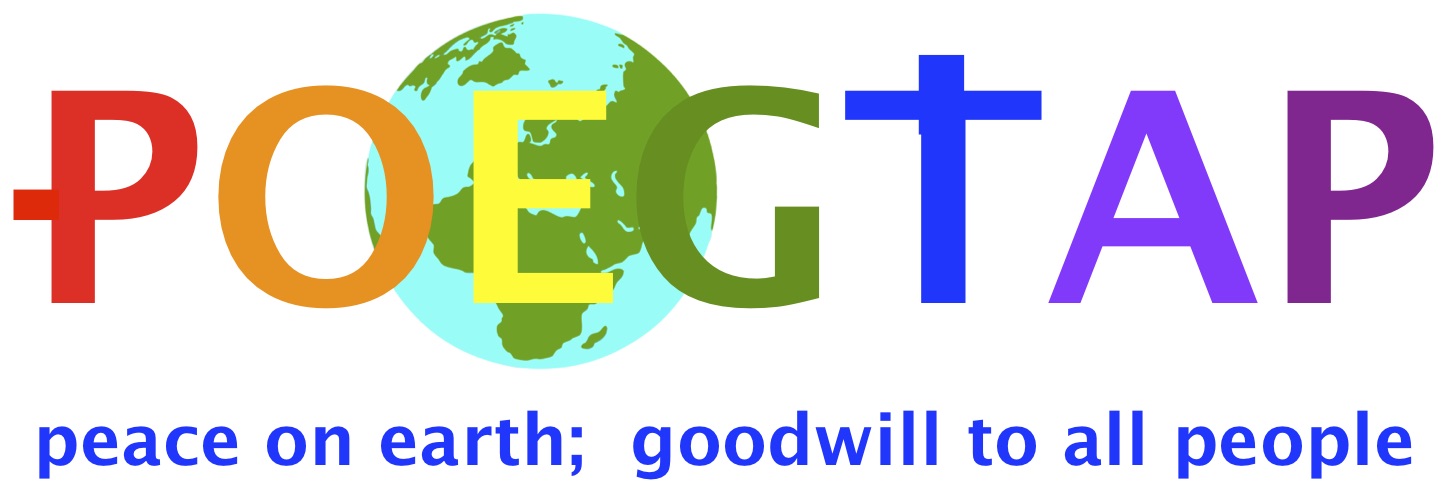BLOG -
On this page we'll post updates about our own progress with POEGTAP,
as well as helpful input from other members of the POEGTAP community.
Here's something to get you thinking (or, more accurately, stop you thinking!)
FINDING OUR SPIRITUAL CENTRE
The starting point : 1234 - One person, Two sides, Three layers, Four levels.
ONE PERSON. Everyone arrives here from a different starting point, and you are no exception. None of us are the same in terms of our life experiences, our living, our loving and our learning. We are each of us unique. As such we are all different in terms of our ‘spiritual consciousness’ or ‘spiritual awareness’. We may be quite spiritual beings, or we may have no inkling of our ‘spiritual side’.
And we are all different in terms of our understanding of, and belief in, doubts about, or outright rejection of the very idea of, a ‘higher being’ - something, or someone, ‘out there’ or ‘up there’.
There is a something of a common denominator to what we are saying here. Both ‘spiritual awareness’ and ‘the notion of a higher being’ ask us to go beyond what we can actually see, touch, smell, or otherwise ascertain as being physical reality.
In our ‘modern’ world we in the west find such things much harder to take on board than did our ancestors, or even other contemporary civilisations across the globe. Our whole upbringing, education and cultural outlook has taught us to trust, and believe, only that which we can ascertain, verify and prove.
We are, however, increasingly coming back to an awareness of this fact, that other cultures have never lost sight of, that our whole existence, and the world we inhabit, is a complex, multilayered thing, much of which is hidden from us in our usual way of seeing.
Even during our lifetimes things have been discovered and proven which before were unimagined - and this way our ‘knowledge’ has increased. Of course, the reality has not changed, it’s just that we now ‘know’, and believe, more of it.
By the same token, some things which used to be taken as fact have since been shown to be not quite as they were thought to be. Again, the reality hasn’t changed, it is just that we have a greater comprehension, and as a result an altered perception, of it. Even so, if someone asks us to believe something that is not demonstrably true, even if it is not demonstrably untrue either, then we probably find that we have a problem accepting it.
So stop here for a moment and ask yourself : is what you believe and hold to be true restricted to what can be proven to be fact - or do you allow yourself to believe in things which are beyond what we can actually see, touch, smell, or otherwise ascertain as being physical reality?
A former US Defense Secretary, Donald Rumsfeld, attracted much comment and a degree of ridicule when he suggested that there are four states of knowledge - “known knowns; known unknowns, unknown knowns, and unknown unknowns”. In other words the things we know we know, the things we know we don’t know, the things we don’t know we know, and the things we don’t know we don’t know . We would do well to accept this as fact in our lives, and to behave accordingly.
To help us to move forward with this, it is helpful to consider two simple secular ideas which have been around for a few years now :
- the idea of a two-sided brain, of left and right brain thinking, and
- the idea of four different levels of being.
- the idea of a two-sided brain, of left and right brain thinking, and
- the idea of four different levels of being.
Both of these ideas come to us from philosophers writing in the second half of the last century, when there was a movement of thought that challenged what had become the conventional concept of ‘knowledge’ ever since the so-called ‘Age of Enlightenment’ of the late seventeenth and eighteenth centuries. That concept, developed principally by the French philosopher Rene Descartes, essentially limited ‘knowledge’ to what could be ascertained, verified and proven, and abandoned much of what, previously, had been accepted as ‘the things we know we don’t know’, or ‘mystery’. Descartes summarised it in the aphorism “I think, therefore I am”. In other words, my existence is limited to what I can process intellectually.
Most of us, most of the time, will not allow our minds to be taken to places outside our comfort zone of verifiable fact and as such we deny ourselves the chance to explore the wider field of experience, and to discover what might be possible. We stick to the ‘known knowns’, and in doing so we limit our lives to a fraction of what might be possible for us. It’s a bit like the gardener who says “If I can’t eat it it’s not worth growing it”; little realising the extent to which what is grown as food is dependent for its well-being upon what inedible plants are growing around it to attract beneficial pollinators, distract harmful pests, and maintain a healthy ecological balance. If we are to discover the full extent of ‘what lies out there’ we shall need to abandon any preconceptions of what we previously defined as ‘the truth’ and open ourselves up to allowing ourselves to at least consider realms that we previously dismissed through lack of evidence.
With that in mind, let us begin our exploration of this subject.
(TO BE CONTINUED . . . )
![]()
![]()


We are in the process of putting together 'A Little Book of Poegtap'. What we have set out above is a rough draft of part of it.
Please get in touch with us if you would like a copy of this ebook when it is ready.
Go well in your own POEGTAP journey!
Please let us know if there is any way that we can help you - the idea of community is that we are all here for each other.
